Movie Review – Cove, The
Brutally damning documentary highlighting the slaughter of hundreds of dolphins in a tiny town in Japan, The Cove is well made and certainly confronting – if not entirely biased. Well worth a look.
– Summary –
Director : Louie Psihoyos
Year Of Release : 2009
Principal Cast : Ric O’Barry, Louie Psihoyos
Major Award Wins : Academy Awards for Best Feature Documentary (2010)
Approx Running Time : 91 Minutes
Synopsis: In a tiny town on the coast of Japan, fishermen corral pods of free dolphins into shore, before a brutal slaughter takes place.
What we think : Brutally damning documentary highlighting the slaughter of hundreds of dolphins in a tiny town in Japan, The Cove is well made and certainly confronting – if not entirely biased. Well worth a look.
**********************
In what can only be described as horrific, The Cove brings to light Japan’s shocking attempts to cover-up their annual dolphin slaughter near the tiny costal town of Taiji, on the southern edge of that country. This documentary, directed by Oceanic Preservation Society co-founder Louie Psihoyos, shows the quest by former dolphin trainer Ric O’Barry to end the annual slaughter of thousands of innocent marine mammals, using hidden cameras, stealth technology, deep-diving champions, and a disregard for personal safety. The Cove won the Oscar for best Documentary Feature at the 82nd Academy Awards (held in 2010), and perhaps rightly so. It’s confronting, wrenching and entirely terrible to witness the slaughter of hundreds upon hundreds of dolphins, all carved up to feed the masses and potentially create a new problem for Japan to endure. More on this in a moment.
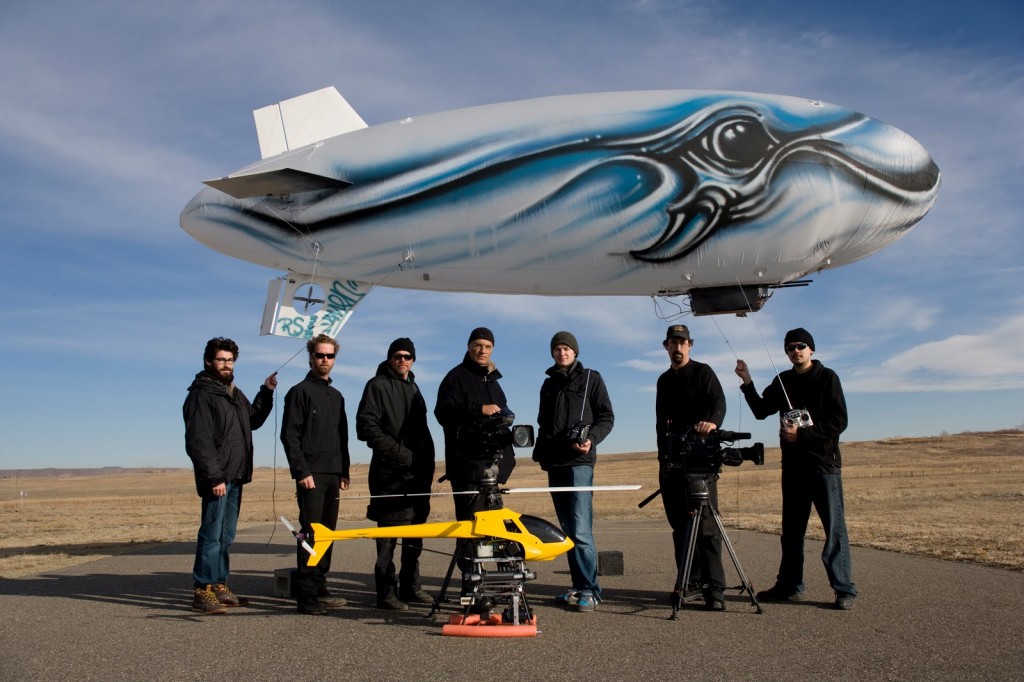
Ric O’Barry was the man known for capturing the 5 dolphins used in the 60’s television serial Flipper. However, after he witnessed one of the show’s dolphins commit suicide, he has since dedicated his life to highlighting Japan’s seeming contravention of the policies set down by the International Whaling Commission (IWC). He co-founded a preservation society designed to counteract what he perceives as a weakness of the IWC to actually prosecute their policies, as well as bringing to light the supposed complicity of water themed parks (such as Seaworld and its ilk) in obtaining captured dolphins from Teiji illicitly. The bulk of the film, aside from the obvious backstory development on just how O’Barry came to be an animal rights activist, shows us the attempts of the filmmakers to capture actual footage of the dolphin slaughter in a hidden cove on the coast of Taiji. The fishermen who do this act have no worries about attacking, abusing and warding off intruders, which is a little strange considering the area of the cove is supposed to be a national park, and accessible to all. Cameras provoke the most angst among the locals, with many standing in front of, or holding signs up to prevent filming, those who seek to bring to light the truth. Equally amazing is the obvious police activity in monitoring those the government believes to be getting too close to the truth – O’Barry himself is well known to Taiji officials, and is hounded relentlessly every time he journeys there. The production team, along with a former Navy SEAL, two deep-water diving champions, and even a major Hollywood effects company, all assist in capturing the damning evidence that Japan, against the wishes of the Western World, are committing a crime.
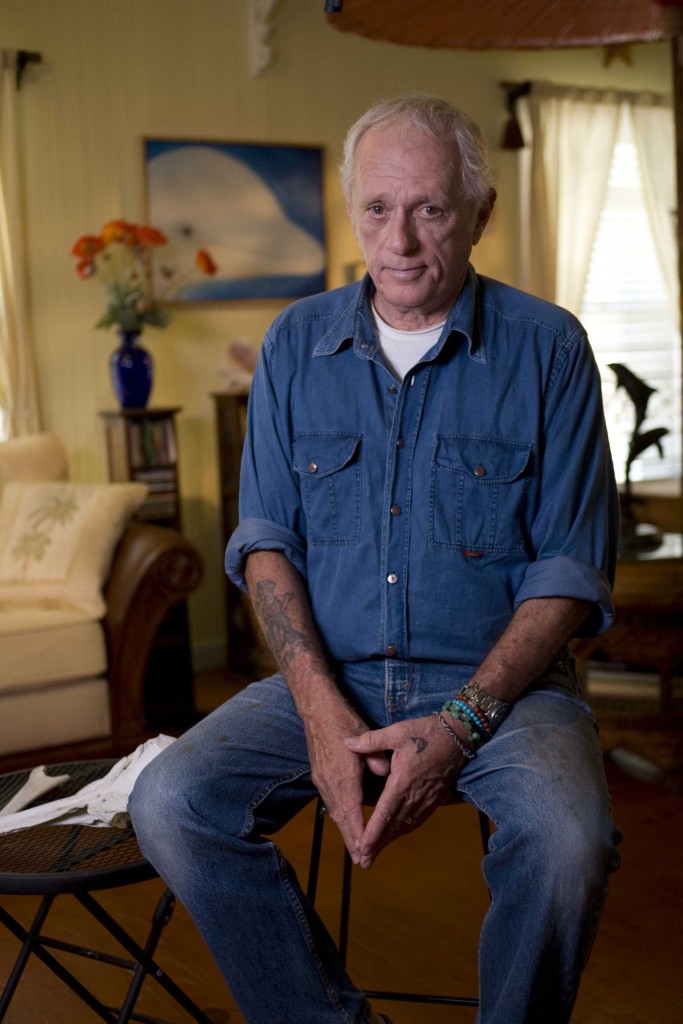
Whether you’re into animal welfare or not, this film will tug at your heartstrings. It’s designed to, designed to elicit a reaction which will spur you into action of some kind – and in this regard, The Cove is a success. The film relies more on our emotional connection with an animal we view as intelligent and self-aware than with pure statistics, much less a Michael Moore style of doco than a David Attenborough one. Indeed, the finale, in which O’Barry walks through an IWC conference with a giant television strapped to his chest, displaying the images captured from the slaughter in the cove, lacks the snarky cynicism of Moore’s best work, instead making us passive observers in the events.
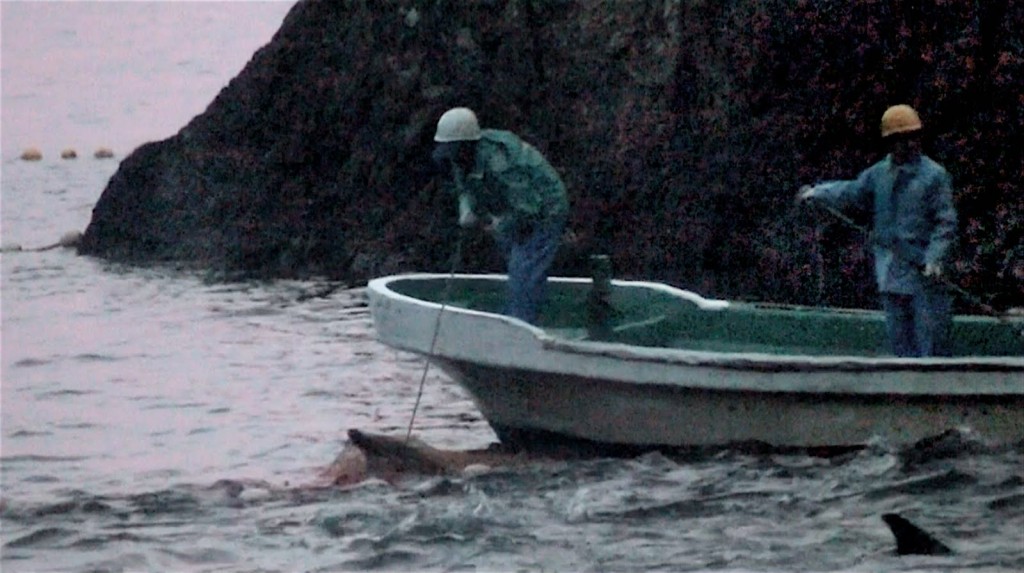
The film posits a number of arguments, however, which seem a tad presumptuous. The tacit allegation that business enterprises which utilize captured dolphins, such as Seaworld, purchase their stock from fisheries like the one in Taiji, has been denied by the company itself; Seaworld have stated that the dolphins they have in captivity were born there, and that they haven’t purchased dolphins in decades. The same argument, however, cannot be offered for all theme parks which feature the animals. The film also posits that dolphins, for whatever reason, have extremely high mercury content in their bodies, making their meat extremely toxic to eat. The Japanese government is portrayed as trying to cover this fact up; not only that, at one point it dolphin meat was going to be introduced as a mandatory meal in schools: the effects of mercury poisoning are horrific to say the least – one small glimmer of karma coming back is that the fisherman killing the dolphins also eat the meat they provide, meaning the killers are also slowly dying of mercury poisoning. The fact they don’t know about the excessive mercury, or don’t want to know, and the fact that (according to the film) most Japanese resident are unaware of their supposed “cultural need” for the killing of dolphins, is of most concern. The Cove struggles to make the primary focus of our rage entirely clear – the fishermen are doing their job, yet they’re made out to be the sole instigators of this butchery (they aren’t), and the ineptitude of the world governing body in this area (the IWC) seems unfathomable as well. It’s unclear who we should hate in this instance – although, on the surface, the dudes with the spears and uncaring attitudes are probably as good a place to start as any.
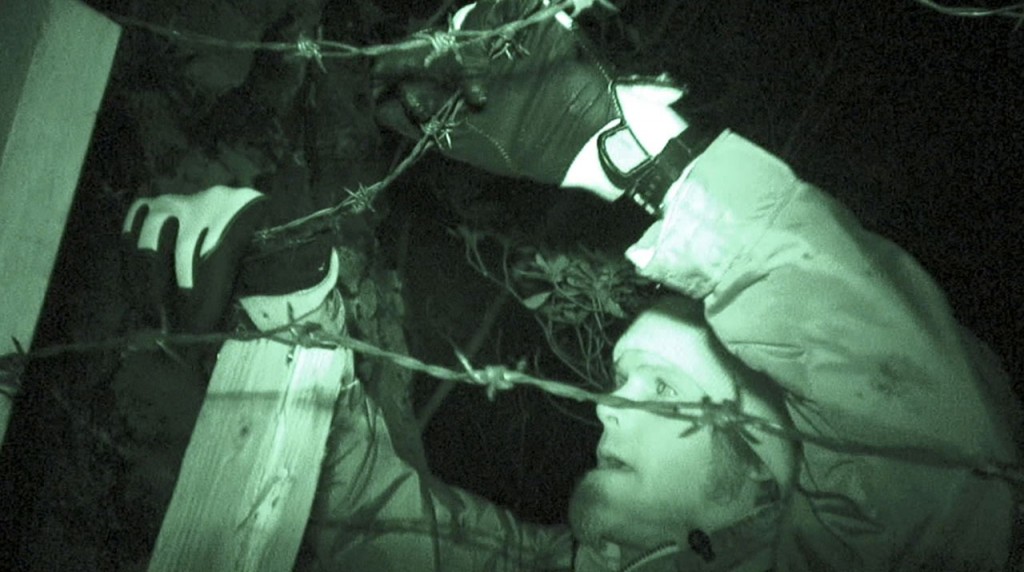
The Cove isn’t a feel-good foray into the lives of dolphins, nor is it as confrontational as I’d have liked. The covert nature of events told in The Cove lend themselves less to a doco and more to a James Bond or Ocean’s 11 styled film – gathering the operatives, planning the mission, and then executing the mission. It’s well made, well filmed, and certainly thought provoking. While the Japanese are hounded out of the Southern Ocean by Paul Watson and the Sea Shepherd Conservation Society while on their annual whale hunt (sorry, “research operation”), it appears that the plight of the smaller members of the whale family (yes, dolphins are part of the whale family) have been largely ignored by the Western World. The Cove attempts to rectify this oversight.


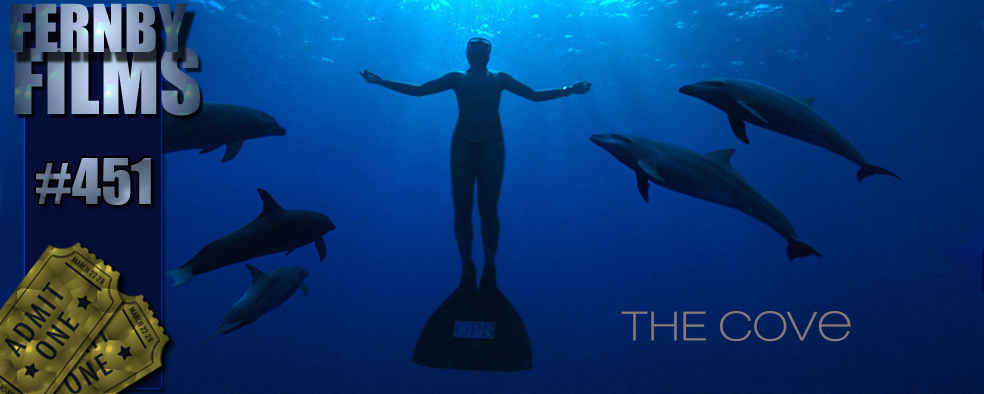
 Blackfish Review
Blackfish Review The Wolverine (2013) vs. The Karate Kid, Part II (1986)
The Wolverine (2013) vs. The Karate Kid, Part II (1986)







Thanks for the recommendation. I'll be checking this one out for sure.
I don't tend to watch a lot of documentaries (which I'm not proud to admit) but the ones I do are usually thoroughly excellent. The Cove is essential viewing for everyone, IMO, and I'm glad I've promted you to see it. It's a shocking indictment on the treatment of dolphins in Japan, really, and the behavior of the fishermen and goverment of that province should be roundly condemmed.
I've been ignoring documentaries for the past few months. This must change. I've added this to my list.
It's funny, I've been watching a few doco's myself recently, and they're normally something I don't really have a lot of time for… The Cove is right up there as one of the better ones – at least if you're looking for something to prick your social conscience.
Yeah, I agree with some of the above comments, this look to be extremely hard to watch for me, as I love all animals haha.
Nice work Rodney!
Thanks Matt – I love animals too (except for sharks….) and this film just infuriates me.
Glad you gave this one a good review, Rodney. I thought this was excellent, such a well-done documentary that's informative AND engaging. It's really hard to watch at times though, which was the point I think.
@Rodney…. here here
Oh My God.
I haven't seen this and to be honest I don't think I want to. I can't believe this type of stuf still happens in the world.
Great review Rodney
The Japanese aren't exactly renowned for their animal appreciation. They still hunt whales each year for "scientific purposes" down in the Southern Ocean below Australia. I'm not a conservationist or a hippie-greenie by any stretch, but their disregard for animal life sticks in my craw, and I for one support any effort to have them stop both this dolphin slaughter and their whale hunt.